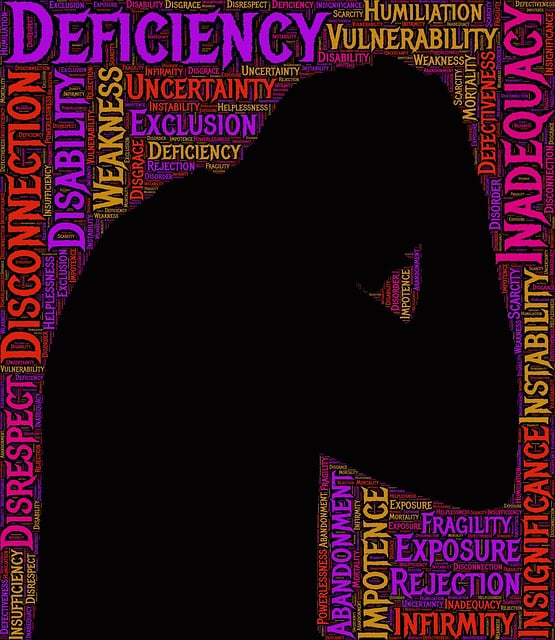Crisis Intervention Teams (CITs), integral to communities like Broomfield Abuse Survivors Therapy (BAST), offer specialized support for individuals in emotional crises, especially those facing domestic violence and substance abuse. CITs, comprised of trained professionals from diverse backgrounds, enhance burnout prevention and improve healing processes through their comprehensive approach. BAST provides tailored crisis intervention training, emphasizing compassion cultivation, resilience building, and interactive role-playing scenarios to equip practitioners with effective skills for managing high-risk situations. This holistic training addresses diverse challenges, promotes community safety, and reduces long-term mental health issues, despite ongoing challenges like stigma reduction and volunteer commitment. Future training could leverage technology, specialize for specific populations, and emphasize post-crisis care.
Crisis intervention team (CIT) training programs are essential resources for communities aiming to enhance their resilience and support systems. This article explores the critical role of CITs in managing crises, with a special focus on Broomfield Abuse Survivors Therapy—a pioneering program showcasing specialized crisis intervention techniques. We’ll delve into the components, methods, and benefits of effective training, while also addressing challenges and charting future directions for optimal community preparedness.
- Understanding Crisis Intervention Teams: A Vital Resource for Communities
- Broomfield Abuse Survivors Therapy: An In-Depth Look at a Specialized Program
- Essential Components of Effective Crisis Intervention Training
- Training Methods and Techniques for Real-World Application
- Benefits, Challenges, and Future Directions in Crisis Team Education
Understanding Crisis Intervention Teams: A Vital Resource for Communities

Crisis Intervention Teams (CITs) are a vital resource for communities, offering immediate and specialized support during times of crisis. These teams consist of trained professionals from various backgrounds—including healthcare, social services, and law enforcement—who collaborate to provide effective assistance to individuals facing severe emotional distress or trauma. In the context of Broomfield Abuse Survivors Therapy (BAST), CITs play a crucial role in addressing domestic violence, substance abuse, and other forms of maltreatment.
By integrating these teams into community response systems, burnout prevention becomes more manageable for frontline workers while enhancing the overall quality of emotional healing processes. Trauma support services benefit significantly from CITs’ comprehensive approach, ensuring that individuals receive holistic care tailored to their unique needs. This collaborative effort not only supports immediate crisis stabilization but also facilitates long-term recovery and resilience among those affected by traumatic events.
Broomfield Abuse Survivors Therapy: An In-Depth Look at a Specialized Program

Broomfield Abuse Survivors Therapy (BAST) is a specialized program designed to provide crisis intervention training tailored for professionals working with abuse survivors. This unique initiative focuses on equipping mental health professionals with the necessary tools to effectively assess and manage high-risk situations, making it a valuable asset in the field of trauma support. Through comprehensive training, BAST offers an in-depth understanding of the complex dynamics surrounding abuse, enabling practitioners to deliver compassionate and skilled care.
The program delves into various aspects, including advanced risk assessment techniques for mental health professionals, fostering an environment where they can learn to identify potential triggers and develop coping skills. Moreover, BAST incorporates conflict resolution techniques, empowering individuals to navigate challenging interactions with survivors while promoting healing. This holistic approach ensures that those in the helping professions are well-prepared to support abuse survivors and contribute to their long-term mental health and well-being.
Essential Components of Effective Crisis Intervention Training

Effective crisis intervention training programs are designed to equip individuals with the skills and knowledge needed to respond sensitively and effectively during moments of intense distress. These programs should incorporate several essential components to ensure their impactfulness. Firstly, they must foster Compassion Cultivation Practices, enabling participants to cultivate empathy and understanding towards those in crisis. This involves recognizing and validating emotions, ensuring non-judgmental attitudes, and promoting active listening skills.
Secondly, the training should focus on Resilience Building and Inner Strength Development. By teaching strategies for stress management and coping mechanisms, individuals can enhance their own well-being while offering support to others in need. Techniques such as mindfulness exercises, positive affirmations, and self-care practices contribute to building mental fortitude, allowing participants to remain calm and composed during challenging situations. These components, when integrated seamlessly into the training curriculum, ensure that crisis intervention team members are better equipped to handle sensitive situations with care and effectiveness, reflecting the ethos of organizations like Broomfield Abuse Survivors Therapy.
Training Methods and Techniques for Real-World Application

Effective crisis intervention team training programs blend a variety of interactive methods to ensure real-world applicability. These often include role-playing scenarios that mimic high-stress situations, allowing trainees to practice communication strategies and social skills training in a safe environment. By simulating real-life crises, such as domestic violence or trauma responses, participants gain hands-on experience in managing emotional intensities and providing immediate support.
Complementing these practical exercises are evidence-based depression prevention techniques and psychological first aid approaches. Training programs that incorporate these methods empower team members to recognize warning signs of mental distress and offer appropriate interventions. The holistic nature of such training, combining communication strategies with crisis management, ensures that Broomfield Abuse Survivors Therapy teams are well-equipped to handle a wide range of challenging scenarios.
Benefits, Challenges, and Future Directions in Crisis Team Education

Crisis intervention team training programs play a pivotal role in equipping individuals with the skills to navigate and de-escalate critical situations. These programs offer numerous benefits, such as enhancing community safety, reducing harm potential, and promoting effective communication during crises. By fostering empathy, active listening, and crisis de-escalation techniques, trained teams can provide immediate support to those in distress, potentially preventing long-term mental health issues like anxiety and depression. Moreover, these initiatives contribute to the broader goal of Mental Wellness by encouraging self-care practices among team members, who often become frontline responders.
Despite their advantages, crisis intervention training faces challenges. One significant hurdle is overcoming the Mental Illness Stigma Reduction Efforts. Many individuals facing crises may resist help due to fear of judgment or discrimination. Training programs must address these apprehensions, promoting understanding and empathy within the community. Another challenge lies in maintaining the commitment and availability of volunteers over time. Sustaining a dedicated team requires continuous recruitment, support, and recognition to ensure their long-term engagement. Looking ahead, future directions for crisis team education could include integrating technology for remote training, developing specialized modules for specific populations like youth or seniors, and emphasizing post-crisis care as an integral part of the training curriculum, reflecting Broomfield Abuse Survivors Therapy’s holistic approach.
Crisis intervention team training programs, as exemplified by initiatives like Broomfield Abuse Survivors Therapy, play a pivotal role in equipping communities with essential tools to navigate and mitigate crises effectively. By focusing on evidence-based methods and incorporating diverse training techniques, these programs enhance the capability of professionals to offer immediate and impactful support during distressing situations. As we look ahead, continuous innovation and research in crisis team education will be crucial to address evolving challenges, ensuring that communities remain resilient and well-prepared to handle crises with compassion and competence.














